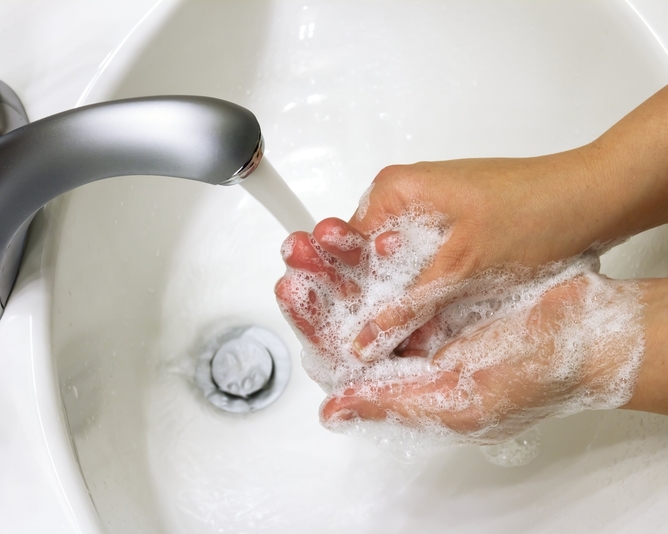A new study finds an easy way to reduce the spread of many infectious diseases, from coronavirus to influenza; washing hands more frequently in just 10 airports.
Though the findings were published in late December, just before the recent coronavirus outbreak in Wuhan, China, the study's authors say that its results would apply to any such disease and are relevant to the current outbreak. The methods included epidemiological and data-based simulations.
People can be surprisingly casual about washing their hands, even in crowded locations like airports where people from many different locations are touching surfaces such as chair armrests, check-in kiosks, security checkpoint trays, and restroom doorknobs and faucets. Based on data from previous research, the team estimates that on average, only about 20 percent of people in airports have clean hands -- meaning that they have been washed with soap and water, for at least 15 seconds, within the last hour or so. The other 80 percent are potentially contaminating everything they touch with whatever germs they may be carrying.

"Seventy percent of the people who go to the toilet wash their hands afterwards, and of those that do, only 50 percent use soap. Others just rinse briefly in some water. That figure, combined with estimates of exposure to the many potentially contaminated surfaces that people come into contact with in an airport, leads to the team's estimate that about 20 percent of travelers in an airport have clean hands.
Improving handwashing at all of the world's airports to triple that rate, so that 60 percent of travelers to have clean hands at any given time, would have the greatest impact, potentially slowing global disease spread by almost 70 percent, the researchers found. Deploying such measures at so many airports and reaching such a high level of compliance may be impractical, but the new study suggests that a significant reduction in disease spread could still be achieved by just picking the 10 most significant airports based on the initial location of a viral outbreak. Focusing handwashing messaging in those 10 airports could potentially slow the disease spread by as much as 37 percent, the researchers estimate.
They arrived at these estimates using detailed epidemiological computer models that involved data on worldwide flights including duration, distance, and interconnections; estimates of wait times at airports; and studies on typical rates of interactions of people with various elements of their surroundings and with other people.
Even small improvements in hygiene could make a noticeable dent. Increasing the prevalence of clean hands in all airports worldwide by just 10 percent, which the researchers think could potentially be accomplished through education, posters, public announcements, and perhaps improved access to handwashing facilities, could slow the global rate of the spread of a disease by about 24 percent, they found.
The researchers used data from previous studies on the effectiveness of handwashing in controlling transmission of disease, so these data would have to be calibrated in the field to obtain refined estimates of the slow-down in spreading of a specific outbreak.